
The European Union has awarded funding to support the development of carbon capture, utilization and storage (CCUS) in the Øresund region, backing a cross-border project aimed at accelerating renewable energy use and enabling the production of sustainable fuels.The three-year project is supported by financing from the Interreg Øresund-Kattegat-Skagerrak program and will establish a

The U.S. Coast Guard is waiting for additional forces to arrive before potentially attempting to board and seize a Venezuela-linked oil tanker it has been pursuing since Sunday, a U.S. official and a source familiar with the matter told Reuters.The ship, which maritime groups have identified as the Bella 1, has refused to be boarded by the Coast Guard.
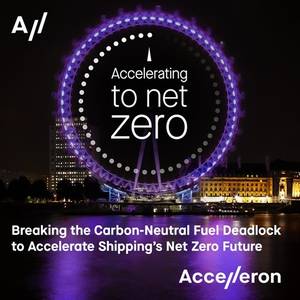
Accelleron will launch a landmark Net Zero report at London International Shipping Week (LISW) this month, calling on shipping to join forces with other industries and pool demand for carbon-neutral fuels.The call to decarbonize shipping has sparked a technological renaissance in the past decade that has enabled vessels to slash emissions in a variety of ways and be powered by carbon-neutral
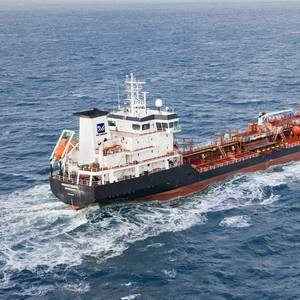
Denmark-based chemical and product tanker operator Uni-Tankers reported solid financial performance for the 2024/25 fiscal year, posting a net profit of $39.5 million and a 24.4% increase in revenue, bolstered by fleet expansion, strong contract performance, and continued investment in digitalization and decarbonization.
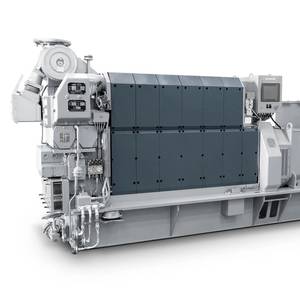
A consortium, led by MAN Energy Solutions, has been formed to deliver the NH3 Spark – FutureFlex project, which aims to develop a dual-fuel, four-stroke GenSet capable of operating purely on ammonia without the need for a pilot fuel, marking a first for a commercial, industrial engine.
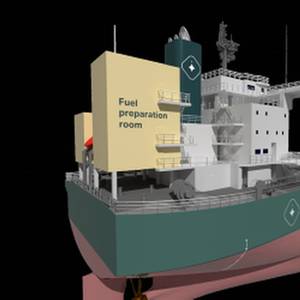
ClassNK has issued an approval in principle (AiP) for retrofitted methanol dual fuel Kamsarmax bulk carrier developed by TSUNEISHI SHIPBUILDING and Maersk Mc-Kinney Møller Center for Zero Carbon ShippingThe AiP is for the design concept of a retrofitted Kamsarmax bulk carrier, converting it from conventional fuel to methanol dual-fuel
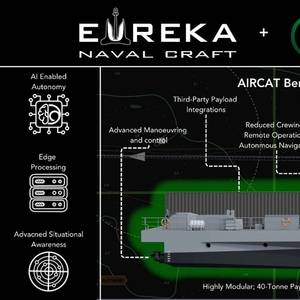
US defense company Eureka Naval Craft and Australian marine autonomy specialist Greenroom Robotics are set to unveil what they describe as "the most advanced autonomous naval attack vessel ever designed" at the forthcoming Sea Air and Space Exhibition in Maryland, USA, April 6-9, 2025.

Experts from the EU CLEANSHIP project have documented that the use of biodiesel of the type B100 FAME in real sailing can reduce black carbon emissions by up to 81 percent at low engine load and up to 61 percent at high engine load compared to traditional marine gas oil, MGO.The measurements with 100 percent biofuel were made during a three-day voyage on the vessel Falstria Swan from Uni-Tankers.
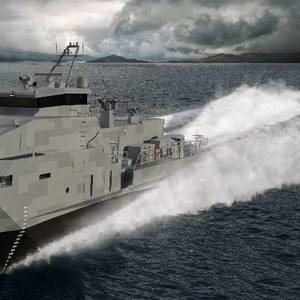
Houston-headquartered defense company Eureka Naval Craft is ramping up production of its AIRCAT BENGAL MC warship in Asia after signing an MOU with Singapore shipbuilder Strategic Marine (S) Pte Ltd.Eureka Naval Craft CEO Bo Jardine said the aim of the partnership is to bring a highly advanced Modular Attack Surface Craft (MASC) to the US Navy and allied navies quickly at a time of increased
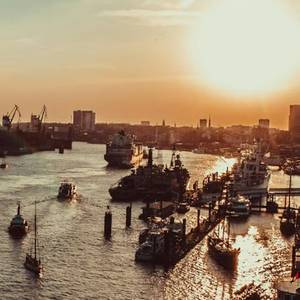
The Mærsk Mc-Kinney Møller Center for Zero Carbon Shipping has gained Approval in Principle (AiP) from ClassNK for the retrofitting of a conventionally fueled Kamsarmax bulk carrier to dual fuel methanol.Led in collaboration with Japanese shipbuilder Tsuneishi Shipbuilding, the project assessed the techno-economic feasibility of a retrofit from fuel oil to dual fuel methanol

Britain's energy regulator Ofgem does not believe an electricity transmission project developed by National Grid Electricity Transmission and SP Energy Networks qualifies to be exempt from penalties related to delays, it said on Thursday.The joint venture between the units of National Grid NG.L and Spain's Iberdrola IBE.